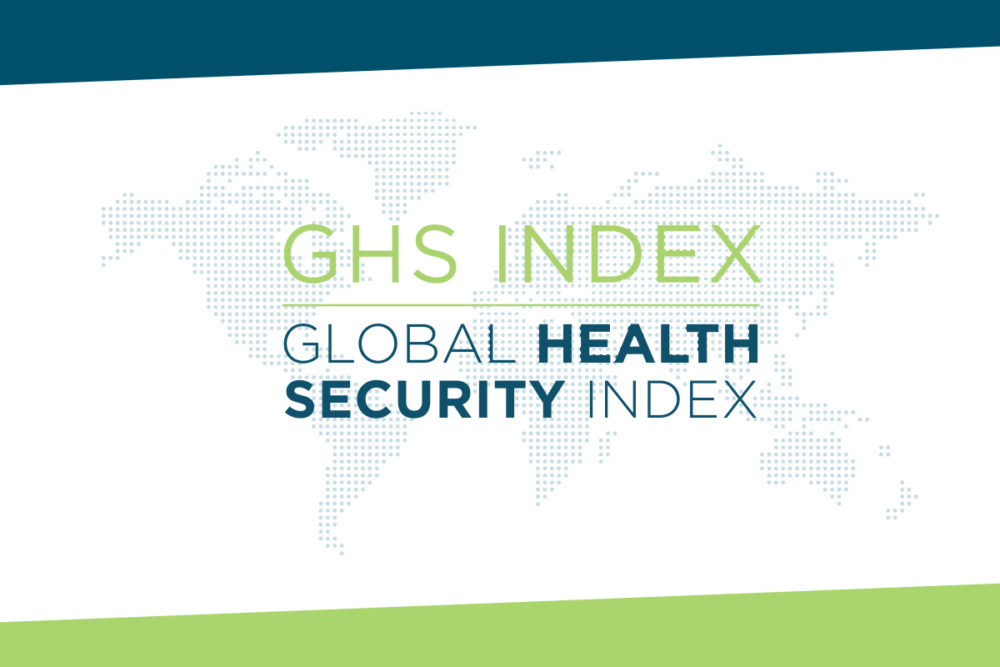
Jessica A. Bell
Senior Director, Global Biological Policy and Programs
Despite significant steps taken by countries to respond to the COVID-19 pandemic, all countries remain dangerously unprepared to meet future epidemic and pandemic threats.
That is the key finding in the 2021 Global Health Security Index, now in its second edition. Developed by NTI in partnership with the Johns Hopkins Center for Health Security at the Bloomberg School of Public Health and researchers with Economist Impact, and in consultation with an international panel of 18 experts from 13 countries, the GHS Index is an assessment and benchmarking of health security and related capabilities across 195 countries. The 2021 GHS Index, released in December, captured data during a period when countries wrestled with COVID-19, and researchers used a revised framework and updated data collection to glean hard truths about pandemic preparedness.
Importantly, countries now have a more acute understanding of what a lack of preparedness means for their health and prosperity. This presents an opportunity to convert high levels of political awareness about pandemics to long-term gains in preparedness by sustaining newly developed tools and building out additional capacities to better protect lives and livelihoods against the next pandemic.
Much is at stake. Countries continue to suffer harm from COVID-19 due to insufficient health security capacity. This lack of capacity comes at a time when political and security risks have increased in nearly all countries, and enduring financial investment necessary to sustain capacities has yet to be demonstrated. Such weaknesses leave a world acutely vulnerable to future health emergencies, including those potentially more devastating than COVID-19.
The 2021 GHS Index finds that even as many countries proved they could ramp up new capacities during the emergency—including setting up labs and creating cohorts of contact tracers to follow the spread of COVID-19—some responses were crippled by long-unaddressed weaknesses, such as lack of healthcare surge capacity and critical medical supplies. Some countries found that even a foundation for preparedness did not necessarily translate into successfully protecting against the consequences of the disease because they failed to also adequately address high levels of public distrust in government and other political risk factors that hindered their response. Further, some countries had the capacity to minimize the spread of disease, but political leaders opted not to use it.
In the face of COVID-19’s staggering toll, national and global leaders have an obligation to sustain and expand upon new preparedness capacities that will serve countries far beyond the current pandemic and to foster the political and social environments that will ensure they are used effectively. The need has never been clearer. COVID-19 continues to generate death and disruption, stress health systems, and exhaust social protections and government budgets—and it will not be the last global health emergency the world will face. Global travel, urbanization, climate change, population growth and movements, advances in biotechnology, and threats from deliberately engineered bioweapons will lead to greater risk of more frequent pandemics.
In addition to its overall finding that all countries remain dangerously unprepared for meeting future epidemic and pandemic threats, the GHS Index finds:
The 2021 GHS Index includes an action plan for countries, international organizations, the private sector, and philanthropies to improve capacities and ensure the world is prepared for the next pandemic.
Visit www.ghsindex.org to explore the GHS Index data, review the full list of findings and recommendations, download the full report and data model, view profiles for each country, use the score simulator, review the full methodology, watch the GHS Index video, and more. Read the 2021 GHS Index press release.
Sign up for our newsletter to get the latest on nuclear and biological threats.
The first comprehensive assessment of global health security capabilities in 195 countries.
The first comprehensive assessment and benchmarking of health security and related capabilities across the 195 countries that make up the States Parties to the International Health Regulations.
On April 21, 2022, immediately after G20 finance ministers and central bank governors reached consensus to establish a new Fund for preparedness at the World Bank, a group of leading experts and stakeholders from met to review progress and offer advice on next steps. This paper aims to inform next steps to structure, approve, and launch a new Fund, including the forthcoming consultative process led by the World Bank.

